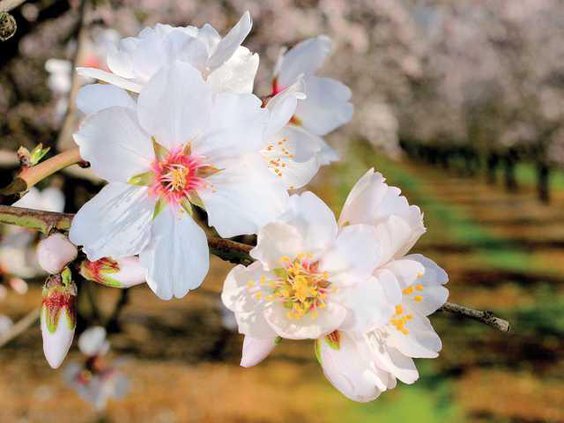A crop of 2,048 new homes is expected to be produced by builders in the coming years in southwest Manteca.
And that has Terra Land Group principals Marty Harris and Bryce Perkins concerned.
The partnership has taken the 230 acres they own that the city had designated as urban reserve for housing and secured a tenant farmer that planted 32,000 almond trees. In correspondence with the city in 2013 they expressed concern that the $2.8 million investment made on the property that included a pressurized irrigation water delivery system could be jeopardized under city plans to rezone the property to comply with the Manteca general plan — the city’s blueprint for growth. The city had indicated the Terra Land Group property would ultimately be low density residential when it was annexed into the city with other property. Tomatoes were being grown on the land at the time.
On Tuesday, the Manteca City Council rezoned their property from urban reserve — a designation no longer allowed by law — and open space to residential estate and open space to comply with the general plan. The land is generally southwest of McKinley and Woodward avenues.
In doing so both Harris and Perkins went on record as they have diligently done at previous meetings to make sure city assurances made to them that they would be able to continue farming as development occurs around them were noted.
They also wanted to make sure any public infrastructure required on their land to accommodate development around them would not impact their ability to farm the property and that they’ll be fully compensated for any land taken.
The almonds planted several years ago in an identified 100-year floodplain have an expected productive life of 25 years.
The undertaking by Terra Land Group is in stark contrast to the trend that has happened south of the 120 Bypass since the late 1990s. At least three dairies and several orchards have been taken out after being bought by developers as Manteca has expanded to the south. In almost every case, farmers have taken the money they earned from the sale of the land and bought property farther away from areas being urbanized.
The Terra orchard is also the largest orchard planted in the area that traditionally has been planted in field crops.
Almonds are the biggest crop in San Joaquin County in terms of dollar production.
While the land ultimately may be developed for residential uses, Harris and Perkins have made a high-profile effort to make sure their concerns are on the record and that Manteca holds to its adopted right-to-farm policy.
That means as long as the almond grower uses accepted farming practices, future homeowners in the nearby proposed 1,370 home The Trails would have no standing under Manteca ordinances to force action to be taken against things they may find objectionable ranging from the use of chemicals to say trees to the dust kicked up when almonds are harvested.
More almond orchards that are near the end of their productive life are being taken out in the coming months along Pillsbury Road in southeast Manteca to accommodate more homes. The nearby Hat Ranch at the end of Pillsbury Road with its landmark 28,000-square-foot mansion is targeted for development for 800 more homes that would mean the removal of vineyards.
Development hasn’t stopped farmers, though, from investing in new orchards either in within the city limits or in rural pockets surrounded by the city such as the areas along the extension of Industrial Park Drive. Almonds and other orchards are more compatible with adjoining urban uses than dairies and field crops. That said, farmers often see problems of increased dumping, vandalism and trespassing when maintaining orchards next to homes.
Almond trees, not homes
Terra Land Group bucks development trend for now





